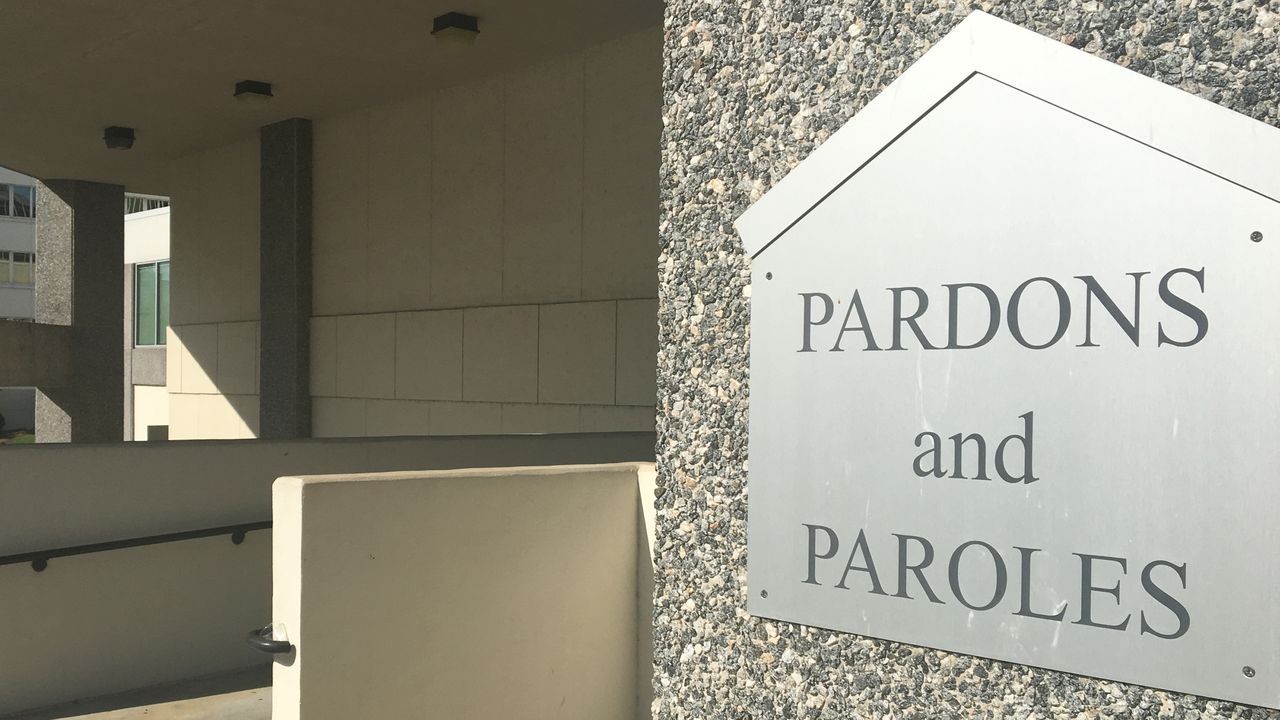Pardons and Paroles bureau moving back to downtown Montgomery
The Alabama Bureau of Pardons and Paroles is moving back to its old location in downtown Montgomery.
The bureau moved to the Capitol Commerce Center off Interstate 85 in east Montgomery in 2019. The Retirement Systems of Alabama is renovating the bureau’s former offices at the RSA Criminal Justice Center on Ripley Street, two blocks from the State Capitol.
Bureau Director Cam Ward said the bureau plans to move by January 1, when the lease at the Capitol Commerce Center expires. Ward said there are 183 employees in the bureau’s state headquarters. Another 35 employees who work in a separate information technology office on Perry Hill Road will also move to the renovated Criminal Justice Center.
The bureau’s monthly rent will increase from $115,000 to $122,000. But Ward said the renovated Criminal Justice Center offices will be a better fit. The Criminal Justice Center also houses offices for the Alabama Department of Corrections and the Alabama Law Enforcement Agency. The Commerce Center was the headquarters for Colonial Bank until the bank’s demise in 2009.
“It’s a bank building,” Ward said. “That’s what it was designed for. It was really not designed for us. We have more business we conduct downtown. I deal with DOC, ALEA, the Legislature. Everybody will be under one ceiling. Which makes it better for us. It’s more conducive for what we do.”
Statewide, the Bureau of Pardons and Paroles has about 780 employees, including probation officers and support staff, and 62 field offices, according to the bureau’s annual report. Officers supervised about 22,000 active offenders. Those include about 77 percent who are on probation and 18 percent on parole.
The Alabama Board of Pardons and Paroles, the three-member board that decides whether to grant paroles and pardons, will also move back to the RSA Criminal Justice Center, along with its support staff. The board has held its hearings at the Commerce Center for the last couple of years. Ward said it will be beneficial to return parole hearings to the larger and renovated hearing room at the Criminal Justice Center. He said the building will be set up better and allow separate entrances for opposing parties who attend parole hearings — crime victims and their advocates, and family members and advocates for inmates seeking parole.
“The inmates’ families come in from one side, into the hearing room,” Ward said. “Then the victims, victims’ rights advocates, come in from another side. All come through secure locations. They come into a room, then they leave and park in different places. You don’t want to mix that population together. That’s asking for problems.”
The move to the Commerce Center came under former Bureau Director Charlie Graddick, who resigned in November 2020 after 14 months on the job. Gov. Kay Ivey picked Ward to replace Graddick. At the time, Ward was serving his third term as a Republican state senator from Shelby County. He was chair of the Senate Judiciary Committee and active in criminal justice reforms in the Legislature.
Read more: New Alabama paroles director: Bureau part of fix for ‘broken’ criminal justice system
Along with moving offices, the Pardons and Paroles Bureau has been through other changes in the last three years. The Legislature passed a bill in 2019 making the director an appointee of the governor. Ward is Ivey’s second appointee, following Graddick.
Before the change in the law, the director was appointed by the parole board. Ivey and Attorney General Steve Marshall pushed for the change. It came after a parolee, Jimmy O’Neal Spencer, was charged with killing two women and a child in Guntersville in 2018, six months after he was released. A Marshall County jury convicted Spencer last year and he was sentenced to death.
The rate of paroles granted dropped sharply after Spencer was charged in the slayings and has continued to fall. The rate was 53 percent in fiscal year 2018 but only 10 percent in fiscal year 2022. Inmates’ families, advocacy groups, and some lawmakers say the board is denying parole for inmates who are good candidates and are not a threat to public safety. They say the low rate is making problems worse in Alabama’s overcrowded, understaffed prisons, which face a lawsuit from the Department of Justice alleging that conditions violate the constitution in men’s prisons. Victims’ advocates and others have defended the board, saying Alabama’s prison population has a higher proportion of violent offenders than it did before criminal justice reforms in 2015 begin sending fewer nonviolent offenders to prison.
As bureau director, Ward is not directly involved in the parole decisions, which are made by the three board members. He has advocated for programs that he believes will help those on probation and parole gain stability and avoid more crimes. Those include the new Perry County Probation and Parole Reentry Program at a former private prison in Uniontown, and about a dozen day reporting centers where people on probation and parole can receive help for drug addiction, mental health problems, and other conditions that contribute to crime. Ward said expanding those programs and making them more widely available is a key to reducing recidivism, the revolving door in and out of the system for some offenders.
Ward said he has talked to the Department of Corrections about possibly converting some of the state’s older prisons to reentry facilities. The state is planning to build two 4,000-bed prisons for men and plans to close some of the older prisons.
“I would love to see us work with DOC for Pardons and Paroles to get some of those long-term,” Ward said. “I think the more of these we can do, the data shows it works. Mental health, drug treatment, job placement, job training, it’s a win-win. It’s shown to reduce recidivism dramatically.”
